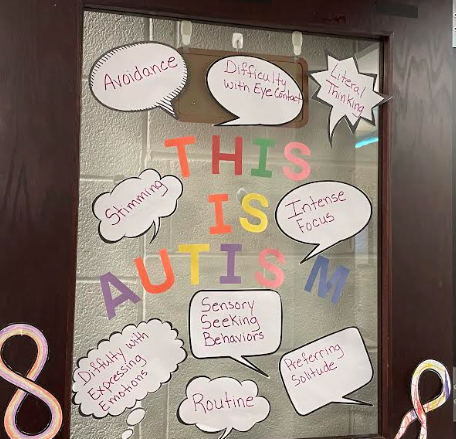It is a common goal to live a long, happy life. With the last couple of years being consumed by COVID-19, war, and political turbulence, it has become difficult to achieve this. However, a new study proves that changing the way you think can not only make you happier but expand brain development.
The University of Southern California (USC) investigated how a child’s thinking habits affect their brain development. Over a five-year process, 65 participants, all people of color from an urban area and between the ages of 14-18, were studied.
The study started by showing kids an inspirational video of teenagers from around the world. These teenagers in the study made connections, not only to their own lives but to different moral and social issues. The researchers called this method of making connections “transcendent thinking.”
“Transcendent thinking really is meant to capture that propensity to move beyond the current context, build a bigger story, and grapple with the psychological kind of meaning or implications that transcend the here and now,” explained Mary Helen Immordino-Yang, a professor at USC, on HuffPost.
According to USC Rossier, transcendent thinking is done by looking past the here and now. To develop these thinking habits you could think more creatively and expand beyond rules, imagine the future you want and strive for it. Allow yourself to express emotions like gratitude and compassion, and indulge in daydreaming.
The kids involved in the research began to ask about big-picture issues and also tried to connect them to their own experiences. The quantity of transcendent thinking didn’t have any connection to the IQ or social status of the kids either, proving anyone was capable of it.
“At least once or twice a year I ask every student about plans out of high school, but stay away from careers and schools,” explained guidance counselor Theresa Onody. “When you look forward in a broad sense with less detail, it helps to take the stress of planning away and leave more up to what the student wants out of life.”
Researchers proceeded by using functional magnetic resonance imagining (FMRI) to study connections between transcendent thinking, brain activity, and brain development.
They took and observed pictures of the teens’ brains while they were thinking and resting. Two years later the same kids returned and new photos were taken. The results showed that significant transcended thinking increased brain development over time.
At the end of the experiment, the teens were given a well being quiz and the transcended thinkers scored the highest.
“What we found is that the degree of brain growth… is associated with growing who you are,” said Immordino-Yang. “That identity development in turn…predicted how satisfied kids were with their lives and how much they liked themselves.”
It’s believed that this can positively affect future generations and stop what Huffpost called “the disease of despair that has become epidemic in Gen Z.”
The mental health of Gen Z continues to be a growing problem. Only 15% of Gen Z said their mental health was excellent in a USA Today poll as compared to another poll taken a decade ago where 52% of Millennials of the same age range said their mental health was great.
This sullen state of many teenagers now could be caused by uncertainty of the future.
“Your time in high school is just a blip and it feels like forever, but it’s not. You won’t always be sixteen,” expressed school social worker Debbie Weikert. “Reminding students that life changes are important. A failed test isn’t a big deal when they have a whole life ahead of them.”
Transcendent contributes to the idea that schools should stop focusing on test scores and grades and instead focus more on the process of learning. It’s said the curiosity and willingness of teens to work out issues and find different perspectives is incredibly important to brain development and aids in the switch from childhood to adulthood.
The current school system does not promote transcended thinking and often prohibits asking questions and out-of-the-box thinking. Such a strict structure may do more harm than good when kids should be encouraged to question rules or at least ask “Why?”
Discussing mental health struggles and current world issues with kids can help them work through problems in the future. Spirituality has also been proven to help with depression, anxiety, and suicidal thoughts.
Transcendent thinking can be an instrument to improve the health of young adults in the future. The research shows that educating kids on how to think freely can only be beneficial.
































































































